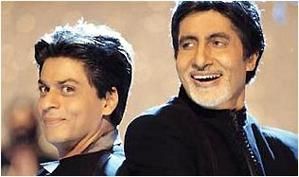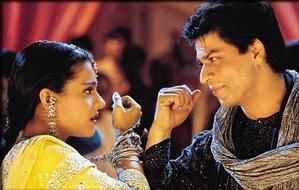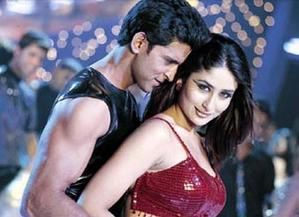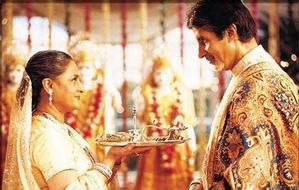"Hating" K3G
Publié le 18 Avril 2007

I had a good laugh yesterday reading in BollyWhat? about all those BW fans giving their reasons why they « hated » Kabhi khushi khabi gham, that 1999 Karan Johar family saga which, it says, “is all about loving your parents”. Here’s the link for those interested: LINK.
One of the participants (Alexaha) in this thread says:
I don't hate anything about this film. It was my first and I was in a state of WTF for the whole time I was watching it. But I could not take my eyes away, even if it hurt (You are my Soniya!). It made me curious for more and that's why I have no desire to analyze its many flaws and forgive them all.

Well, she's of course very broad-minded and forgiving. But at the same time, she says "its many flaws", which shows she's not stupid. What seems stupid to me is the "hating", precisely. Okay, I do understand that even the haters hate tongue in cheek, but they have decided to hate, all the same. Now, how can you be a BW fan and hate K3G? That's a hard thing, even if you hate only certain aspects of it. Because K3G (and KHNH too, for that matter, the BollyWhat thread concerned the two films) is quintessential BW! All of Karan Johar's golden four (K3G, KKHH, KHNH and KANK) are quintessential BW. So this hate sounds strangely like spite: spite because Johar is so successful, so obviously enjoying himself and bent on pleasing his audience.

Yes, naturally there are many flaws in these films. It's possible to list them, from an artistic or technical point of view. Well, an artistic viewpoint is always a little subjective, a little conditioned, a little cultural. So that even if one could distil the flaws away from the films, one would probably lose what makes them distinctly palatable as masala productions: the basic naivety with which these films are made. This naivety is an unabashed, good-humoured and easily recognisable avowal of the Indian values which the mainstream culture enjoys. Of course the importance of family ties, including the conservation of the generation gaps, then the values of respect, hierarchy, authority. The other trio is love, youth and freedom. The two sets of values must clash to make a good story, but a compromise should be found that will somehow conciliate the two. Now for cultural reasons, the Bollywood director is likely to enhance the differences, and this leads to the overstatements and frequent triteness that people love to hate. But I think these "flaws" are more often than not concessions to a taste which we in the West don't share completely, or they are left-overs from an editing less perfectionist than what we are accustomed to.

For example Kajol's excessive Indianness, which I too found a little overdone, along with her pranks, squints and general foolery in the first part of the movie: well, first she's not always like that, and I watch that telling myself that it's an element of the childishness and the exaggeration of the joyful spirit of being in love with the world and oneself. That's how children behave: they're happy, and they exaggerate it just for fun. Some people also criticise the mother's submission to her "god", her husband? Well, that's also culture. If these people think they can just come and shove aside traditions and practices because they aren't politically correct, they're free to think that, of course. It only shows a certain ignorance of customs in a country where modernity is not so fast and not so uniform everywhere. One last example: some people dislike the fact that the story takes place in the Raichand "palace". Not very useful for the purpose of the story? But a film is also for dreaming, no?

Kabhi Khushi kabhi gham is a story where emotions come from a simple situation of estrangement and pain. Love had been given, love is taken away, love is given back. In the meantime a reassessment of traditions takes place: the almighty father accepts he's been wrong, and the rights of a more spiritual family relationship are asserted. That's not so bad, I think. The rest is rather wonderful too, Naina accepting to grow old without the one she loves, Rohan fighting for the unity of his family, Pooja playing the English Posh, but not forgetting her roots at the right moment: there probably aren't many families where this sort of spirit prevails.
/image%2F1489169%2F20200220%2Fob_9722d6_banner-11.JPG)